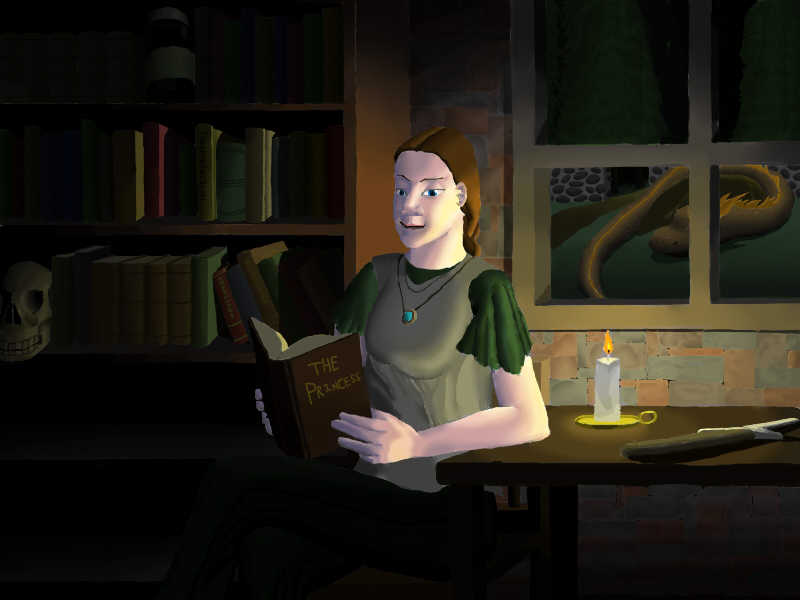Skills
Choosing Skills
You get a number of skill points to distribute among the skills of all of your characters equal to your point limit. The cost, in skill points, for various levels of bonus in a skill is as follows:
| Bonus | Number of Subfields | Total Skill Point Cost |
|---|---|---|
| +1 | 0 | 2 |
| +2 | 0 | 4 |
| +3 | 1 | 8 |
| +4 | 1 | 16 |
| +5 | 1 | 32 |
| +6 | 2 | 64 |
| +7 | 2 | 128 |
| +8 | 2 | 256 |
| +9 | 3 | 512 |
| Another +1 | 3 | As above, ×2 |
Subfields
Once a character hits +3 in a skill, they choose a subfield of that skill, and they get more subfields when they hit +6 and +9. When making a check with the skill that directly relates to the chosen subfield, they get an extra +2 to the check. If multiple subfields for the skill apply, they still only get +2. If a subfield says "specific", you have to choose which specific thing the subfield pertains to when you take it.
Regiments
When assigning a skill to all members of a Regiment of identical minion characters, pay the cost in skill points only for the first four minions.
NPCs
DMs can't really be expected to choose skills for every NPC in the world, so here's a simple way for the DM to decide what an NPC's skill bonus in a skill is: if the NPC dabbles in the skill, they get a +2; if they rely on that skill most of all for their profession, they get a +4; if they are famous for being very good at the skill, or would be if people knew, they get a +7; if they were appointed to be the chief master of that skill in the land, they either get a +7, or a +4 but +7 in either People, Bluff, or Arcana; and if you're not sure, just pick one of those or +0.
Skills
When making a skill check, roll a d6, add your current bonus in the skill, and compare to a DC. The DC for a skill check ranges from 2, for almost trivial actions, to 9, for almost superhuman actions. Unlike some other actions, a roll of 6 only counts as 6.
Arcana: Know rules, regulations, and codes, bureaucracy and logical discourse, and how to use and misuse them properly.
- Subfields: A specific legal system; identifying logical fallacies; employing logical fallacies
Bluff: The art of lying, impersonation, and scaring. When lying, roll a bluff check to determine how hard it is to detect with Insight. You can also be Frightening as a standard action, affecting any number of creatures within 8 meters, or any one creature who can hear you; roll a Bluff check, and creatures with an Insight bonus greater than the check minus 3 are unaffected. If multiple creatures attempt bluffs to scare against the same target, that target is only affected by the highest roll of any such creature in the time since its last turn.
- Subfields: Falsely expressing emotions; frightening people; baldfaced lies; pretending to be someone else
History: Remember past events, and the locations thereof.
- Subfields: A specific nation; a specific family line; a specific 100 kilometer region
Insight: Detect lies or attempts to impersonate others by rolling higher than the target's Bluff. Either of these things is a lesser action, but can only be attempted once per statement or disguise. You can also use Insight to determine the best way to talk to someone, or to figure out what sort of offers they would appreciate or what sort of things they most want to protect.
- Subfields: Lies; impersonation; identifying what someone would appreciate; identifying what someone wants to protect
Items: Identify, create, and repair items. You can detect when an object that malfunctions was sabotaged with a DC 7 Items check.
- Subfields: Items that use a specific color of gems; items that use a specific psychic bloodline; items that are neither magical nor psychic (Cybergems: also do not count items that require any Technologies); items weighing at least 10000 kilograms; items weighing 1000-10000 kilograms; items weighing 100-1000 kilograms; items weighing 10-100 kilograms; items weighing less than 10 kilograms; armors; weapons; vehicles; Cybergems Only: Items that require a specific technology
Legerdemain: Disguise sounds and motions you make as innocuous things by rolling at least equal to a target's Insight, if their Perception wasn't high enough to notice the action immediately. Also, use the Foil Search action.
- Subfields: Disguising against a specific sense; foiling searches
Nature: Identify plants and animals, predict the weather, forage for food, cure the wounded, follow natural tracks. A keen knowledge of geography helps you estimate where things should be; find caves, figure out how the sewer system in the city would be arranged, and so on. You can recognize when a creature has been killed by poison or disease with a DC 7 Nature check. You can make the Save DC or GD Attack 2 points lower for a save against a poison or disease by caring for them for the Repeat Time of the disease and succeeding on a DC 4 Nature check.
- Subfields: Curing; identifying plants; identifying animals; predicting the weather and foraging; cities; forests; mountains; frozen lands; deserts
People: Recognize important and powerful figures, and keep track of less powerful, but more personally relevant ones. Figure out how best to contact or locate individuals.
- Subfields: Criminals; nobility; merchants; peasantry; craftspeople; warriors; loners; mages; psychics; scientists; clergy
Scripts: Understand ancient or damaged writings. Make forgeries, which can only be seen as such with an equal or higher Scripts check. Make codes, which take a Scripts check 1.5 times higher (rounded up) than your check to decode without instructions; each check to attempt decoding takes as long as you choose to have it take a reader who does have the instructions.
- Subfields: Making new codes; deciphering codes made by people who've written things you've decoded before; ancient and damaged writings; forgeries
Supernatural Philosophy: Understand magical effects, including spells, the effects of magic items, the special abilities of creatures with a color descriptor, and psychic abilities, and recognize the effects of magical intervention. Remove gems from your body by meditating. Determining which spell is attuned to a gem is DC 4, or DC 7 if the spell is multicolored.
- Subfields: A specific tier (spell tier and monster tier); a specific color; two specific psychic bloodlines
Useless Skills: Players can invent new, overly specific and generally insignificant skills to give to their characters, like Basketweaving or Double Backflips. If the DM deems the skill sufficiently useless, the character gets a bonus to their skill checks equal to 50% of the modifier they would otherwise have in that skill, rounded up. For example, if Porcine Secundus had 32 skill points in Make Stick Houses, he'd roll 1d6+8 for checks with it, rather than 1d6+5.
Lying with Knowledge
Sometimes a person may wish to detect a lie by knowing that it's false, rather than by telling that the liar is not acting honest. In this case, both characters use the most appropriate skill, like Arcana or People, in place of Insight and Bluff. A character who tries evaluating a statement one way cannot attempt to also evaluate it with the other.
Making Up Skill Checks
When attempting to perform some task not covered by the rules, it most likely should involve some number of skill checks. The DM is obliged to choose which skills and make up appropriate DCs and action costs as necessary. The DC(s) should be known to the players before they decide whether to actually attempt the action.
Rolling to Know Things
A large part of the function of most skills is the chance for characters to be more informed about their situation. Not all knowledge has the same significance, however. If a skill's knowledge function is described above, that overrides anything contradictory below where relevant.
Plot Hook Facts
There are things the DM desperately wants the players to know, like reasons to care about a haunted castle or vital clues to some mystery. This is a chance for the characters who specialize in that field to show their cleverness and exercise their own personal interests by choosing how to exposit the data, and how accurately to do so. The DC to know a fact of this type is 7, but if nobody succeeds, the DM is encouraged to either let the highest roller (or multiple if there's a tie) know anyways, or present the data via some other means.
Critical Details
There are things the DM desperately wants the players to figure out on their own, or only later in the future, like the solution to a mystery or that the local deity who all say must be obeyed is actually an ordinary soul-devouring monster. Incredibly skilled characters should be able to deduce such things far sooner than most, so the DC for this sort of knowledge is no greater than 14.
Useful Facts
Other information does not fit into any of the above categories. For such knowledge, roll to determine how much the character knows. For facts about foreign nonlegendary topics, there is a -2 penalty to the roll, and for things that they could not possibly have already learned and would need to deduce cleverly, there is a -5 penalty to the roll.
| Skill Check | Result |
|---|---|
| 2 or less | You know something untrue. |
| 3 | You have no idea. |
| 4-5 | You don't know the answer, but you know of a person or place you could visit to find out. |
| 6-7 | You don't know the complete answer, but you have some clue. |
| 8 or more | You know the answer. |
Rolling Again
If a character has already rolled to know a particular detail, they can never roll for that detail again. If they'd still like to discover the truth, they must do research or experimentation instead.

